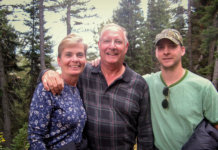
Photo by Kaboompics .com from Pexels
Interview with Jay Hughes and Barbara Hauser:
A Mission Statement is a declaration of what the family’s goals are and what they want to achieve. Many families assume they must begin their governance work by having a Mission Statement. The Family Office Association recently interviewed Jay Hughes and Barbara Hauser about their views on Mission Statements. In the third of this 3-part series their answers and insights are summarised. To read part 1 click here. For part 2 click here.
What are some common unreasonable expectations and assumptions about Mission Statements, and what some reasonable, yet compelling, expectations for creating one?
Hughes: Many families and their consultants approach the Mission Statement as something that should enhance their family members’ journey to happiness. That’s nice, but what will you do to make that happen? A Mission is about doing. People don’t like it when they’re told this is a question of doing. They see that it’s very hard work, and they’re right!
If you don’t have a Mission Statement that’s as big as that idea, it’s useless. Otherwise, it’s just a piece of paper a consultant sells that means nothing and no one pays attention to. People don’t know, often, until they’ve been at it and making decisions together, whether they really do want to do that together.
Hauser: The Mission Statement should help welcome the next generation into the inner workings of the family. It should act to help make decisions.
In one family in the U.S., the oldest son got in touch with me and said, “We had a disaster when my father died. It was a total mess. There’s got to be a better way to do things.” At his father’s death all of the local newspapers were full of reports about his mistress and litigation between family members. There were hurt family feelings, embarrassments, and lots of conflict. So they asked to work with me to avoid that particular kind of problem in the future. Their mission statement might have read, “We want to do what we can to ensure a smooth conflict-free transfer to the next generation.”
In creating a Mission Statement with a family business, I usually start out with individual meetings, drawing out the concerns of each person. Then I compile all of their answers from the family group and show it back to them. That gives them their individual goals, organically, and what they’re committed toward. The idea of a fill-in-the-blank Mission Statement is meaningless to me. If you go back to the corporate Mission Statement, if you make it generic enough, everyone will buy into it, but it will have no meaning in practice.
Hughes: You can find a template of Mission Statements on the internet and in rucksacks of consultants. But in the end, they are usually not used by the family because it’s not a reflection of their life.
If it isn’t voluntary and it doesn’t come to life with the second and third generation; then it’s useless. The family has to have a long history working together, making decisions together first because the Mission Statement has to be a statement about a process that exists and reflects an existing process that works rather than reflecting a process that has not yet gotten started.
What are some ways the family might be included in developing a Mission Statement and help create genuine buy-in?
Hauser: It’s critical to include the opinions of each family member in the process and the only way to get that done accurately is with separate, confidential interviews. I always find there are opinions each member has that they are afraid to express to each other directly. But with the diplomatic help of an outside facilitator who puts those opinions together, they have a way to talk about their opinions and work on them together.
Hughes: The problem of the Mission Statement is that most of the families who have them don’t use them. As I mentioned earlier, the most useful Mission Statements — that don’t gather dust — are a result of a family discovering its purpose through a shared set of experiences. It should be a result rather than a beginning.









